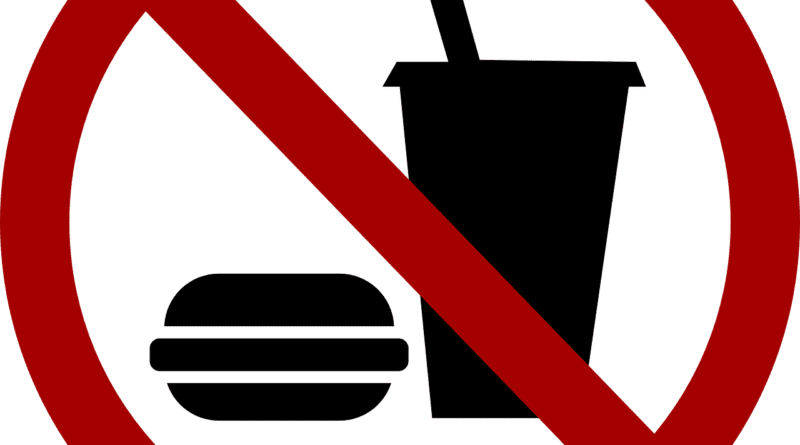Go on a Diet That Doesn’t Involve Food for Better Results?
Far too many people think they need to go on a diet — and the majority of the United States should. With around 70% of Americans considered overweight and over 40% being obese, you can say the US is “livin’ large.”
That said, if you want to lose weight and keep it off, you may need to go on a diet that doesn’t involve food at all (even though some of the examples below will toss them in to further explain the point I’m trying to get across). Now, that may sound pretty crazy, right? But hear me out on this one, and by the end of the article, it will all make sense.
Related Article: Is Utilizing a Liquid Diet an Effective Weight Loss Solution?
Let’s look at how you can go on a diet that doesn’t involve food for better results.
Disclaimer: This article is for informational purposes only. It is recommended that you speak with your doctor before making any changes to your nutrition plan.

Should YOU Go on a Diet?
Absolutely! And I don’t even care if you currently have visible abs. Why? Because in order to get the best results out of life and make things easier on yourself, you need to cut out a bunch of the things that don’t bring value to your life. You need to go on a diet that eliminates waste, negativity, and cancers from your life.
Related Article: Anti-Inflammatory Diet: Legit or Completely Worthless?
What Does It Mean to “Go on a Diet?”
To “go on a diet” typically means that someone is making intentional changes to their eating habits and/or food intake with the goal of achieving specific health, weight, or fitness outcomes. The term “diet” in this context does not refer to a temporary or short-term plan but rather describes a person’s overall pattern of food consumption. There are several different reasons why someone might choose to go on a diet, and the specifics can vary widely from person to person. Here are some common reasons and types of diets:
- Weight Loss: Many people go on a diet to lose weight. This often involves reducing calorie intake, making healthier food choices, and increasing physical activity. Weight loss diets can vary in terms of the foods allowed and the specific approach taken (e.g., low-carb, low-fat, intermittent fasting, etc.).
- Health Improvement: Some individuals adopt dietary changes to improve their overall health. This may include managing conditions such as diabetes, high blood pressure, or high cholesterol through diet. Health-focused diets often prioritize nutrient-dense foods and may restrict certain items that can exacerbate health issues.
- Allergies and Intolerances: People with food allergies or intolerances may need to follow a specific diet that avoids the triggering foods. For example, individuals with celiac disease must follow a gluten-free diet, while those with lactose intolerance should avoid dairy products.
- Ethical or Moral Reasons: Some individuals choose specific diets based on ethical or moral beliefs. For example, vegetarians and vegans avoid animal products for environmental, animal welfare, or personal reasons.
- Athletic Performance: Athletes may follow specialized diets to optimize their performance and recovery. These diets are often tailored to provide the necessary nutrients and energy levels for their specific sport or activity.
- Medical Conditions: Certain medical conditions require therapeutic diets to manage symptoms and improve health. For example, a ketogenic diet can be used to manage epilepsy, and a low-sodium diet is recommended for individuals with heart conditions.
It’s important to note that not all diets are created equal, and what works for one person may not work for another. A diet should ideally be sustainable and balanced to meet individual nutritional needs while aligning with one’s goals and preferences. Additionally, consulting with a healthcare professional or registered dietitian before making significant dietary changes is often advisable, especially if there are underlying health concerns or specific goals to be met. Making informed choices and adopting a balanced, long-term approach to eating is generally more effective and healthier than extreme or fad diets.
Things to Eliminate When You Go on a Diet
Below are five things you need to eliminate when you go on a diet (you can look at this as the new “lifestyle diet”).
1. Remove Negativity
An interesting fact that not many people think about when it comes to weight loss is stress. When you have negativity in your life, it can cause stress to build up around you. If this becomes a daily occurrence and chronic, it can raise cortisol levels and cause you to store body fat more easily.
Look at everything around you and go on a diet. Eliminate the stress from your life. That means getting rid of negative people in your life and anything that is creating negativity and causing you to stress or worry.
2. Eliminate Poor Habits
When you go on a diet (in the traditional meaning), you need to change your habits by becoming more active and cleaning up your nutrition. Let’s take things a step further.
You need to focus on eliminating poor habits such as smoking, drinking alcohol, sitting around watching television all night, going out to clubs and bars, and anything else that you know isn’t healthy for you or doesn’t put you in a position to get ahead in life.
Related Article: 6 Weight Loss Hacks That Do Not Deal with Dieting
If the habit doesn’t move you forward in life, it’s dragging you backward. Eliminate it from your daily habits.
3. Minimize Bad Choices
Humans are impulsive. And when we go on a diet, we expect to see changes take place immediately. Unfortunately, this rarely ever happens. To succeed in life and even weight loss, you need to look at the net positive or net negative.
Click here to continue reading…


*Disclosure: This article may contain affiliate links or ads, which means we earn a small commission at no extra cost to you if you make a purchase through these links. These commissions help support the operation and maintenance of our website, allowing us to continue producing free valuable content. Your support is genuinely appreciated, whether you choose to use our links or not. Thank you for being a part of our community and enjoying our content.
PLEASE CONSIDER SHARING THIS ON YOUR SOCIAL MEDIA TO HELP OTHERS LEARN MORE ABOUT THIS TOPIC.





